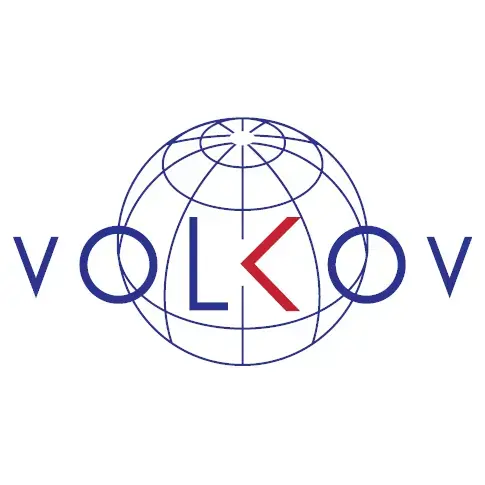The mining industry has long been recognized as a sector particularly vulnerable to bribery and corruption risks. With operations frequently located in remote jurisdictions, complex permitting processes, and constant interactions with foreign government officials, mining companies are exposed to heightened enforcement scrutiny under anti-bribery and anti-corruption (“ABAC”) laws worldwide. Chief among these are the United States’ Foreign Corrupt Practices Act (“FCPA”) and the United Kingdom’s Bribery Act 2010 (“UK Bribery Act”), both of which impose stringent requirements on companies operating internationally.
In this environment, robust compliance programs are not simply advisable—they are critical to protecting corporate value, maintaining investor confidence, and ensuring long-term operational success.
Regulatory Challenges
Recent years have only sharpened these challenges. While the Trump Administration has temporarily de-emphasized FCPA enforcement, particularly as part of broader deregulatory efforts, it is crucial for mining companies to understand that the legal prohibitions remain fully operative.
Among other things, the FCPA prohibits U.S. companies and their affiliates from offering, promising, or giving anything of value to foreign government officials to obtain or retain business. It also mandates that companies maintain accurate books and records and a system of internal controls sufficient to detect and prevent improper payments. Temporary enforcement lulls do not excuse violations, and companies misreading the current regulatory climate risk serious consequences.
Similarly, the UK Bribery Act imposes an even broader prohibition, criminalizing the bribery of any person, not merely foreign officials, and creating a strict liability offense for companies failing to prevent bribery unless they can demonstrate the existence of “adequate procedures” to mitigate such risks.
ABAC Exposure Risks
The structural risks inherent in the mining sector exacerbate these legal exposures. Mining companies must routinely obtain and maintain licenses, concessions, permits, and environmental approvals—processes that inevitably involve engagement with a wide range of public officials, regulators, customs agents, and land management authorities. These touchpoints create ample opportunity for corrupt conduct, whether through direct payments, gifts, hospitality, or facilitation payments.
Under the FCPA, facilitation payments may be permissible in limited cases for routine governmental actions, but the UK Bribery Act recognizes no such exception. The frequent use of third-party agents, consultants, and joint venture partners in high-risk jurisdictions further compounds these challenges, particularly where due diligence is insufficient or monitoring lapses occur.
Operating environments add another layer of complexity. Mining activities are often heavily concentrated in jurisdictions that rank poorly on Transparency International’s Corruption Perceptions Index, where bribery and corrupt practices may be entrenched in business culture. In such settings, pressures to engage in improper transactions to secure permits, expedite customs clearances, or obtain favorable regulatory treatment can be intense. Nevertheless, under both the FCPA and UK Bribery Act, companies cannot rely on local customs or practices as a defense.
Compliance expectations demand that companies operating in high-risk jurisdictions maintain elevated standards of integrity, even where doing so may place them at a short-term competitive disadvantage.
Enforcement Challenges
Industry enforcement patterns underscore the severity of these risks. Mining and extractive companies have historically figured prominently in high-profile ABAC enforcement actions, including settlements involving tens or hundreds of millions of dollars in penalties.
Improper payments made through local subsidiaries, agents, or joint venture partners have frequently served as the basis for liability, even where parent companies claimed limited knowledge or control.
There is continued focus of enforcement authorities on high-risk industries and severe consequences can result from failures in internal controls and compliance oversight. Under the FCPA’s accounting provisions, any mischaracterization of improper payments—whether as “consulting fees,” “marketing expenses,” or otherwise—can independently trigger liability, while the UK Bribery Act’s strict liability framework emphasizes the necessity of proactive preventive measures, regardless of actual corrupt intent.
Implementing ABAC Compliance
In response, mining companies must embed ABAC compliance deeply across all aspects of their global operations.
- Third-party due diligence must go beyond cursory vetting to include rigorous assessment of beneficial ownership structures, political connections, prior compliance history, and the integrity of sub-agents.
- Clear and unequivocal policies prohibiting bribery, facilitation payments, and improper gifts or hospitality must be implemented and consistently enforced.
- Comprehensive training programs tailored to specific regional and operational risks should be deployed for employees and third parties alike, ensuring that personnel recognize and appropriately respond to corruption risks.
- Confidential reporting mechanisms, robust internal audit functions, and periodic risk assessments are indispensable tools for maintaining a culture of compliance and providing defensible proof of corporate good faith should investigations arise.
Ultimately, while the global enforcement landscape may ebb and flow, the fundamental obligations imposed by the FCPA, the UK Bribery Act, and other national anti-corruption laws remain immutable. Mining companies that view ABAC compliance as an operational imperative—rather than a purely legal necessity—will be best positioned to navigate regulatory scrutiny, preserve their reputations, and sustain profitable operations over the long term.
In a sector uniquely exposed to a complex web of political, regulatory, and reputational risks, a proactive approach to anti-bribery and anti-corruption compliance is no longer merely prudent; it is indispensable for ensuring ethical and sustainable growth in an increasingly demanding global environment.
Interested in learning more about navigating ABAC risks in the mining industry? Explore GAN Integrity’s guide!

The Volkov Law Group is a premier boutique law firm specializing in corporate compliance, internal investigations, and white-collar defense. The attorneys at the Volkov Law Group bring over 40+ years of combined experience in government, big-law firm, federal prosecution, corporate monitoring, and corporate consulting. They specialize in: Anti-Corruption Compliance and Enforcement; Compliance Strategies And Programs; Criminal Investigations And Prosecutions; Internal Investigations; Government Relations; and Training.
